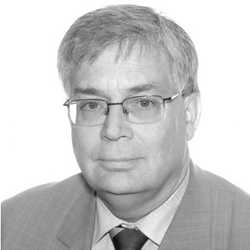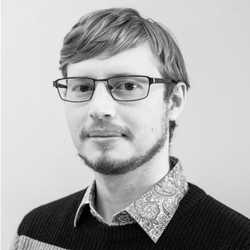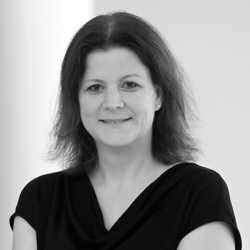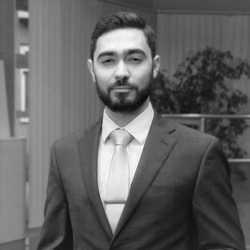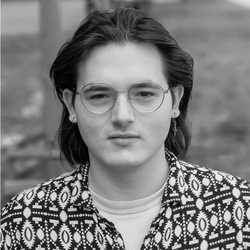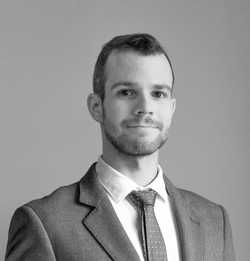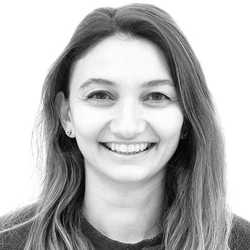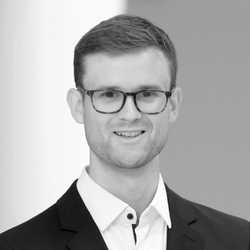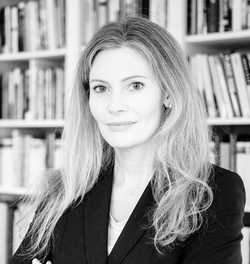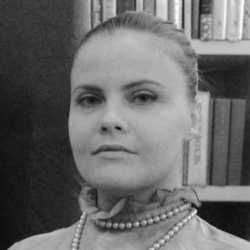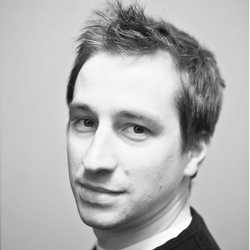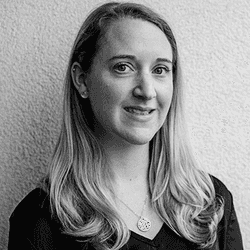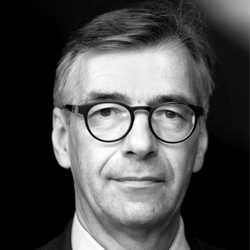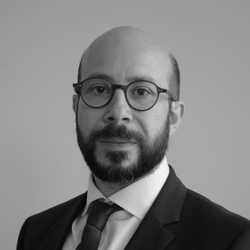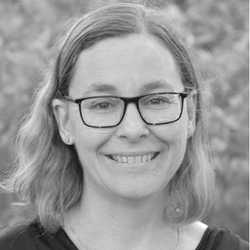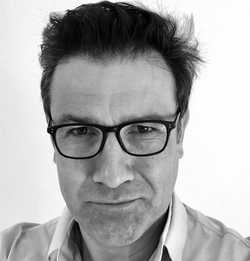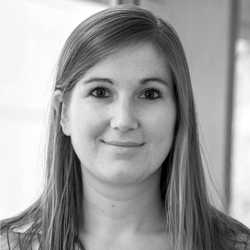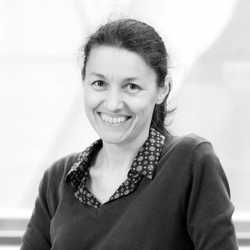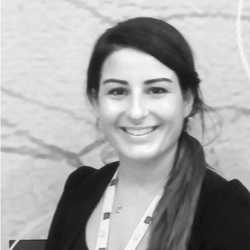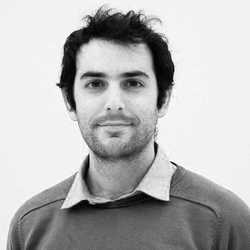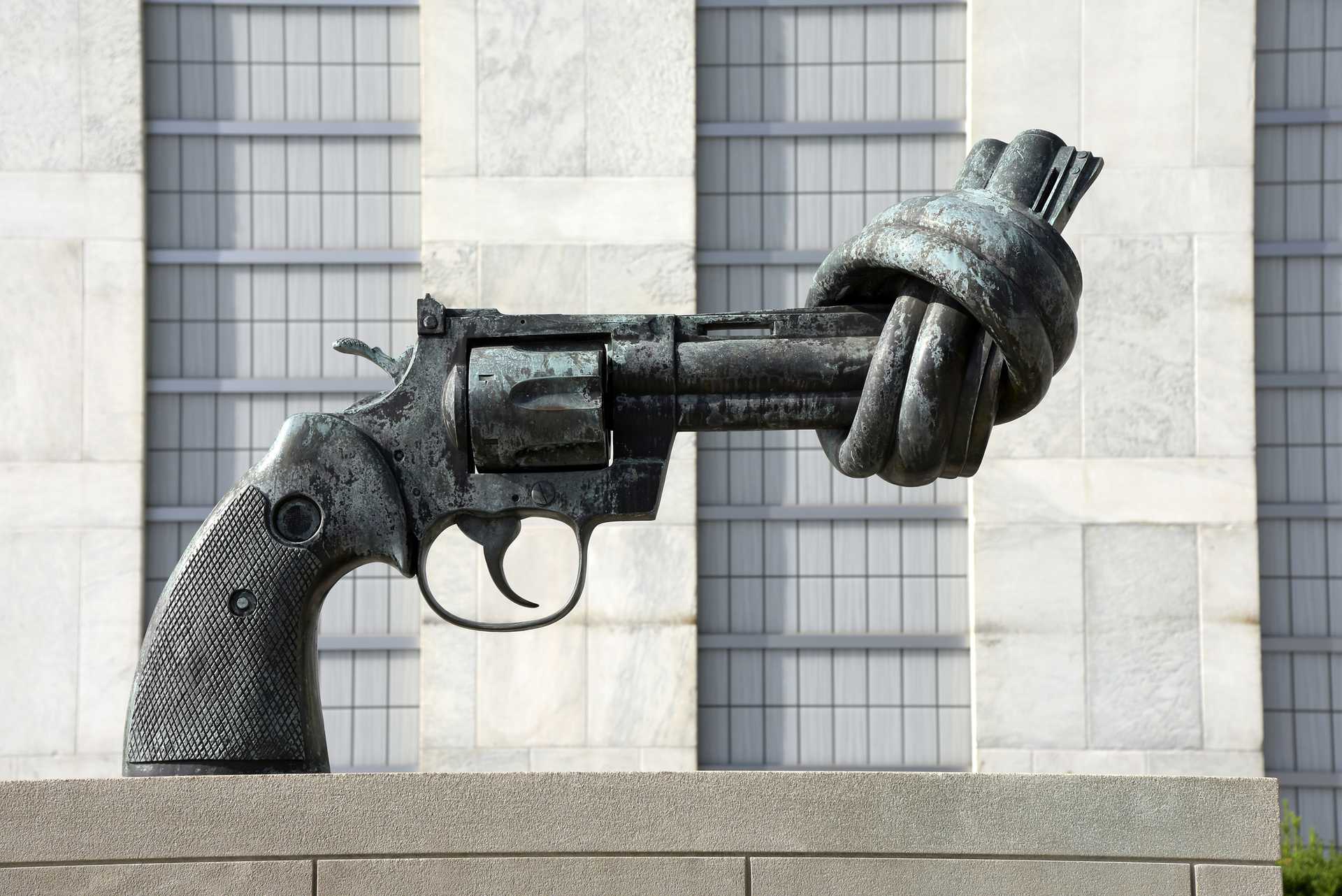
Above: null
Demo Unit
This is the unit's tagline. It should summarise the subject of the unit in 20-50 words and encourage the viewer to read on. The image to the right or below this text is the unit's thumbnail. The "Start" button takes students to the unit's first chapter.
Start learning unitChapters
1. Demo Title
This is an optional introduction to the chapter. It can give additional context to the chapter title, or otherwise prepare the reader for the text that follows. There is no character limit, but aim for 20-30 words.
2. Map demo
Just seeing what a map component could look like.
3. Charts demo
An example display of charts.
Learning Objectives
These are the unit’s learning objectives - a 100-200 word summary of what the reader will take away from the unit. In this case, you’ll get an overview of the capabilities of our publishing platform and how you might use some of them in your own learning unit.
Credits
![Jane Doe profile image]()
Jane Doe
Example UniversityThis is the author bio. It can contain links and other rich content and has no character limit - though we recommend 500 words or less. If there are multiple authors, they each get their own bio. Your profile image should be square.
![Jean Pascal Zanders profile image]()
Jean Pascal Zanders
The TrenchDr Jean Pascal Zanders (Belgium) is an independent researcher/consultant on disarmament and security questions. He heads The Trench, a research initiative dedicated to the future of disarmament. He is also a non-resident Senior Research Associate at the Fondation pour la Recherche Stratégique (Paris).
He holds Master’s Degrees in Germanic Philology-Linguistics (1980) and Political Sciences (1992) and a PhD Degree in Political Sciences (1996) from the Free University of Brussels. He was Project Leader of the Chemical and Biological Warfare Project at the Stockholm International Peace Research Institute (1996–2003), Director of the Geneva-based BioWeapons Prevention Project (2003–08) and Senior Research Fellow at the European Union Institute for Security Studies (2008–13).
He has participated as an expert to the Belgian and EU Delegations in the BTWC and CWC meetings since 2009. From January 2016 until December 2019, he chaired the Advisory Board on Education and Outreach (ABEO) of the Organisation for the Prohibition of Chemical Weapons (OPCW) and remained a member until December 2021.
![Dr Jakub Pražák profile image]()
Dr Jakub Pražák
Dr Jakub Pražák is a Research Fellow in the PSSI’s Space Security Program, which he joined as a Project Assistant in June 2018. Dr Pražák is the first graduate of the William P. Clark Ph.D. Scholarship in Space Security. His research focused primarily on space threats and offensive counterspace technology. Dr Pražák holds two Master’s degrees in Security Studies and International Relations and a Bachelor’s degree in Political Science and International Relations from Charles University. Before joining PSSI, Dr Pražák was an intern at the Czech Ministry of Defence and at the National Cyber and Information Security Agency.
![Kristína Sikoraiová profile image]()
Kristína Sikoraiová
Kristína Sikoraiová joined the Prague Security Studies Institute in February 2020 and has since contributed her expertise to the Space Security Program. She holds a Master’s degree in International Relations and Diplomacy, with a minor in Managerial Psychology and Sociology, earned at the Prague University of Economics and Business. Her Master’s thesis explored the field of cybersecurity in space, with a specific emphasis on EU–US cooperation. The research Ms Sikoraiová conducted for her undergraduate dissertation centered on how the People’s Republic of China is expanding its global influence through the space sector.
![Elisabeth Hoffberger-Pippan profile image]()
Elisabeth Hoffberger-Pippan
Peace Research Institute Frankfurt (PRIF)Elisabeth Hoffberger-Pippan is a senior researcher at the Peace Research Institute Frankfurt (PRIF). She holds a PhD in Law from the University of Linz, Austria. Her main research areas include arms control, humanitarian law, and human rights, focusing on biological and chemical weapons as well as emerging technologies in armed conflict.
![Lauriane Héau profile image]()
Lauriane Héau
Stockholm International Peace Research Institute (SIPRI)Lauriane Héau (France) is a Researcher with SIPRI’s Dual-Use and Arms Trade Control Programme. As part of her work, she follows developments within the main instruments and regulations established to regulate the arms and dual-use trade at the national, european and international levels. Her recent work focused on the MTCR, the impact of NewSpace, and intangible transfers of technology. She also conducts research on mitigating arms diversion risks, and follows developments within the Arms Trade Treaty.
![Una Jakob profile image]()
Una Jakob
Peace Research Institute Frankfurt (PRIF)Una Jakob is a senior researcher and head of the research group Biological and Chemical Disarmament and Security at the Peace Research Institute Frankfurt (PRIF). She holds a PhD in Political Science from the University of Frankfurt, Germany. Her research interests include biological and chemical weapons disarmament and non-proliferation, international norms, the BWC and CWC, biosecurity, and the governance of emerging technologies and dual-use research in the life sciences.
![Patrik Martínek profile image]()
Patrik Martínek
Patrik Martínek is a Project Coordinator at PSSI, mainly focusing on projects connected with space security. He holds a Bachelor’s degree in International Studies and Diplomacy, and a Master’s degree in International Politics and Diplomacy from the Prague University of Economics and Business. He wrote his Bachelor’s dissertation on current trends in space security, and his Master’s dissertation focused on the topic of space traffic management.
![Fabian Hoffmann profile image]()
Fabian Hoffmann
Oslo Nuclear Forum/Oslo UniversityFabian Hoffmann is a Doctoral Research Fellow at the Oslo Nuclear Project (ONP) at the University of Oslo. His research focuses on missile technology, nuclear strategy and defence policy. His PhD project addresses the implications of conventional long-range strike weapons on nuclear strategy.
Fabian’s research has been published in the Journal of Strategic Studies, European Security, War on the Rocks and The Washington Post, among others. He frequently contributes to the national and international news, providing commentary for both print and broadcast media.
![Nico Mastrangelo profile image]()
Nico Mastrangelo
Prague Security Studies InstituteNico Mastrangelo, a student of PPE, is deeply curious about the world around him. In the context of his career, he has since spent time in various industries, including the Theater, Service, Communications, Journalism, and Research sectors. Currently, as a Project Coordinator at the prestigious Prague Security Studies Institute, Nico has had the wonderful privilege of assisting with various projects; while primarily working within the Economic and Financial Statecraft Program, he jumped at the opportunity to harness his previous skill sets to assemble this learning unit. He hopes you learn as much by listening to it, as he did making it!
![František Avrat profile image]()
František Avrat
František Avrat is a Project Coordinator supporting the Space Security Program. Mr Avrat holds a bachelor’s degree in China Studies from Masaryk University and a master’s degree in Asia Pacific Studies from National Chengchi University in Taiwan, with a focus on Chinese sharp power in Czech–Sino relations. He also holds the Erasmus Mundus Master’s degree in Intelligence, Security and Strategic Studies. His main area of interest is space security, the role and tactics of the People’s Republic of China in the international system, and emerging disruptive technologies.
![Ottavia Credi profile image]()
Ottavia Credi
Ottavia Credi was a Researcher in IAI’s Defence and Security Programmes. She specialises in international security, European and transatlantic defence, disarmament and non-proliferation. Formerly, Ottavia worked at the European Parliament in Brussels and at the American Security Project in Washington DC. Ottavia holds a Bachelor of Arts in International Studies from the University of Trento and a Master of Arts in Intelligence & International Security from King’s College London’s War Studies Department. She currently works as a consultant on EU policies.
![Yasemin Balci profile image]()
Yasemin Balci
VERTICYasemin Balci is a Senior Legal Officer for VERTIC’s National Implementation Measures Programme. She manages and implements projects on the legislative implementation of the Chemical Weapons Convention, Biological Weapons Convention, UN Security Council Resolution 1540 and agreements related to nuclear security. Yasemin holds an LLM in international law from the University of Cambridge.
![Frank Kuhn profile image]()
Frank Kuhn
Peace Research Institute Frankfurt (PRIF)Frank Kuhn is a Doctoral Researcher at Peace Research Institute Frankfurt (PRIF), Germany. His research interests include arms control and nonproliferation, nuclear deterrence, military technology, and military strategy. In his dissertation, he explores the motives of high-level U.S. decisionmakers to engage in strategic arms reductions talks with the Soviet Union and Russia. Frank Kuhn is also the Project Coordinator for the Cluster for Natural and Technical Science Arms Control Research (CNTR) at PRIF, which analyzes emerging technologies and developments in the natural and technical sciences from an interdisciplinary perspective. He holds an M.A. in International Studies/Peace and Conflict Studies from Goethe University Frankfurt and Technical University Darmstadt, Germany, and a B.A. in Political Science, also from Goethe University Frankfurt. Frank Kuhn is member of the Young Deep Cuts Commission and a 2025 Nuclear Scholar of the Project on Nuclear Issues (PONI) at the Center for Strategic and International Studies (CSIS) in Washington, D.C.
![Filippa Lentzos profile image]()
Filippa Lentzos
King's College LondonDr Filippa Lentzos is Reader (Associate Professor) in Science & International Security at King’s College London, with a joint appointment in the Department of War Studies and in the Department of Global Health & Social Medicine. She is also an Associate Senior Researcher at the Stockholm International Peace Research Institute (SIPRI) in Sweden and a Non-Resident Scholar at the James Martin Center for Nonproliferation Studies (CNS) in the United States.
Lentzos serves as the NGO Coordinator for the Biological Weapons Convention. She is a member of the UK Biosecurity Leadership Council and of the WHO Health Security Interface Technical Advisory Group (HSI-TAG). She also serves as an adviser and mentor on the Young Women in Non-Proliferation and Disarmament mentorship programme, and as an advisory board member at the Vienna Center for Disarmament and Non-Proliferation (VCDNP) in Austria.
A biologist and social scientist by training, Lentzos has researched and been actively involved in biological disarmament and non-proliferation for over two decades. For more about her work, see www.filippalentzos.com
![Veronika Klymova profile image]()
Veronika Klymova
Peace Research Institute Frankfurt (PRIF)Veronika Klymova is a Researcher at the Peace Research Institute Frankfurt. She is a doctoral candidate in Political Science at the University of Frankfurt, Germany. She holds an MA in International Relations/Political Science from the Geneva Graduate Institute, Switzerland and master’s degrees in International Development and in Psychology. Her main research interests include international norms against biological and chemical weapons, AI governance and moral psychology.
![Nils Duquet profile image]()
Nils Duquet
Flemish Peace InstituteNils Duquet is the Director of the Flemish Peace Institute, an independent research institute affiliated to the Flemish Parliament (Belgium). He started working at the Institute as a researcher in 2006 and has authored more than 70 policy-oriented and academic publications on illicit firearms trafficking and gun violence in Europe, domestic gun policies and European arms export controls. In recent years, he has coordinated several large-scale European research projects on gun violence and arms trafficking in Europe.
![Mara Zarka profile image]()
Mara Zarka
Vienna Center for Disarmament and Non-ProliferationMara Zarka is Project/Events Manager and Research Associate at the VCDNP. Mara is responsible for the management and coordination of the VCDNP’s projects under the EU Non-Proliferation and Disarmament Consortium. She also serves as the Center’s Gender Champion Focal Point. Her research interests include export controls, IAEA safeguards and verification, non proliferation and arms control.
![Christopher Daase profile image]()
Christopher Daase
Peace Research Institute Frankfurt (PRIF)Christopher Daase is Professor of International Relations at Goethe University Frankfurt, Germany, and Deputy Director of the Peace Research Institute Frankfurt (PRIF) where he heads the research department on “International Security”. His research and teaching focuses on security policy (especially wars and civil wars, terrorism and radicalization, non-proliferation and arms control) as well as international institutions. Dr. Daase studied political science, literature, philosophy and art history in Hamburg, Freiburg and Berlin and conducted doctoral research as a SSRC-MacArthur Fellow in International Peace and Security at Harvard University and the RAND Corporation. In 1996 he received his doctorate from the FU Berlin with a thesis on unconventional warfare. He is co-founder of the Arms Control Negotiation Academy (ACONA), and member of the Executive Board of the EU Non-Proliferation and Disarmament Consortium. Dr. Daase has published several books and numerous articles in international journals and was editor of the leading German international relations journal for more than ten years. Since 2022 he is member of the Advisory Board on Education and Outreach of the Organisation for the Prohibition of Chemical Weapons (OPCW).
![Dr Clara Portela profile image]()
Dr Clara Portela
Dr Clara PORTELA teaches Political Science at the Law School of the University of Valencia, having previously worked as a research fellow with the EU Institute for Security Studies (EUISS) in Paris and Konrad Adenauer Visiting Scholar at Carleton University’s Centre for European Studies in Ottawa. Her research focuses on EU foreign policy, multilateral sanctions and arms control. She holds a PhD from the European University Institute in Florence and an MA from Freie Universität Berlin. In recognition of her work, she received the THESEUS Award for Promising Research on European Integration, and was shortlisted for the 2024 Bernard Brodie Prize. Clara Portela has been a Visiting Professor at the College of Europe, SciencesPo Paris, OSCE Academy, Hitotsubashi University in Tokyo, University of Malaya and the University of Innsbruck.
![Frank Sauer profile image]()
Frank Sauer
Bundeswehr University MunichPD Dr Frank Sauer is the Head of Research at the Metis Institute for Strategy and Foresight as well as a Senior Research Fellow at the Bundeswehr University Munich. His main research foci are nuclear issues and emerging technologies. He is the author of the book Atomic Anxiety: Deterrence, Taboo and the Non-Use of US Nuclear Weapons and has had various articles published in journals such as Survival, Security Dialogue, Contemporary Security Policy and the International Review of the Red Cross. Frank also serves on various expert panels advising governments, civil society and industry. He co-hosts the multiple award-winning German language podcast Sicherheitshalber on all things security and defence. You can follow Frank on X/Twitter and BlueSky @drfranksauer.
![Débora Trombetta profile image]()
Débora Trombetta
Uppsala UniversityDébora Trombetta is a researcher at the Department of Applied Nuclear Physics from Uppsala University, in Sweden. Débora has a PhD in applied nuclear physics and her background is in Nuclear Nonproliferation. Débora also performed research in the area of nuclear disarmament verification under the working group on Technical Verification and Monitoring from the Alva Myrdal Centre for Nuclear Disarmament.
![Łukasz Kulesa profile image]()
Łukasz Kulesa
Royal United Services Institute (RUSI).Łukasz Kulesa is Director of Proliferation and Nuclear Policy at the Royal United Services Institute (RUSI). His research interests include nuclear and conventional deterrence, arms control, Euro-Atlantic security, non-proliferation of weapons of mass destruction and the transatlantic security relationship.
Prior to joining RUSI, Łukasz was Deputy Head of Research Office at the Polish Institute of International Affairs (Warsaw). He also worked as Research Director at the European Leadership Network (ELN). He holds a master’s degree in international relations and European studies from the Central European University and is a graduate of the law department of the Jagiellonian University.
![Sonia Drobysz profile image]()
Sonia Drobysz
VERTICSonia Drobysz is Programme Director for VERTIC’s National Implementation Measures programme, where she has been working since 2013 and where she oversees the development and implementation of global projects on the legislative implementation of obligations arising from international instruments for the non-proliferation of CBRN weapons and the security of related materials. She holds a PhD in international law from University Paris I Panthéon Sorbonne.
![Kolja Brockmann profile image]()
Kolja Brockmann
Stockholm International Peace Research Institute (SIPRI)Kolja Brockmann (Germany) is an independent consultant and a Senior Researcher (non-resident) with SIPRI’s Dual-Use and Arms Trade Control Programme. His recent work has focused on the multilateral export control regimes, post-shipment controls, and non-proliferation and export control challenges linked to additive manufacturing, hypersonic missile technology and the NewSpace industry. Kolja routinely gives lectures and presentations to a range of audiences, provides policy advice and contributes to export control capacity-building programmes.
![Cecilia Gustavsson profile image]()
Cecilia Gustavsson
Uppsala UniversityCecilia Gustavsson is an associate professor in Applied Nuclear physics at Uppsala University with a background in experimental nuclear physics. She is currently a member of the working group on Technical Verification and Monitoring at the Alva Myrdal Centre for Nuclear Disarmament.
![Benjamin Hautecouverture profile image]()
Benjamin Hautecouverture
Fondation pour la recherche stratégique (FRS)Benjamin Hautecouverture is a Senior research fellow for arms control, non-proliferation and disarmament issues at the Fondation pour la recherche stratégique (FRS), Paris, France. He is the Technical Director of the EU Partner to Partner programme of the European Union for the implementation and universalisation of the Arms Trade Treaty, at Expertise France. He is a senior fellow at the Canadian Global Affairs Institute, in Ottawa, and was formerly a lecturer at Sciences Po and the Ecole Polytechnique, both in Paris.
For two decades, his areas of focus have included the study of strategic relations between states; nuclear deterrence; non-proliferation and disarmament in the field of weapons of mass destruction and conventional weapons; the nuclear proliferation phenomenon and nuclear proliferation crises; and the North-East Asian strategic landscape with a focus on the North Korea nuclear and ballistic issues. He continues to work on nuclear security, the NPT review process, the chemical weapons prohibition regime, along with European Union security and defense challenges and prospects, including the various EU security strategies.
He is the author of several books in collaboration: The Nuclear Nonproliferation Regime at a Crossroads (Palgrave MacMillan, 2014), WMD Arms Control in the Middle East: Prospects, Obstacles and Options (Routledge, 2015), among others. He regularly publishes articles on major international security issues. As of March 2022, his latest articles addressed the issue of European strategic autonomy, the future of strategic stability, strategic risk reduction, the NPT and the P5 process, nuclear security and terrorism, and the Arms Trade Treaty (ATT).
![Linde Desmaele profile image]()
Linde Desmaele
Leiden UniversityLinde Desmaele is an Assistant Professor of Intelligence and Security at the Institute of Security and Global Affairs (ISGA) at Leiden University. Her work is situated at the intersection of international relations and security studies, with a focus on nuclear politics, US alliances and European security. Before joining Leiden University, she held fellowships at MIT and Columbia University. She holds a PhD from the Vrije Universiteit Brussel, where her dissertation earned her the 2022 Global Strategy PhD Prize.
![Prof Margarita Petrova profile image]()
Prof Margarita Petrova
INSTITUT BARCELONA D'ESTUDIS INTERNACIONALS (IBEI)Margarita Petrova is an assistant professor at the INSTITUT BARCELONA D'ESTUDIS INTERNACIONALS (IBEI) where she teaches courses in International Relations and International Peace and Security. She holds a PhD degree in Government from Cornell University and her doctoral thesis, "Leadership Competition and the Creation of Norms: A Cross-National Study of Weapons Restrictions," received the 2008 Helen Dwight Reid award for best dissertation in international relations, law and politics from the American Political Science Association. Margarita's main interests are in the area of international norm development, ethical and legal issues in international relations, security studies and arms control, and transnational activism and NGO advocacy.
![Anna Péczeli profile image]()
Anna Péczeli
Anna Péczeli, Ph.D., is a senior fellow at the Center for Global Security Research (CGSR) at Lawrence Livermore National Laboratory. She is also an affiliate at the Center for International Security and Cooperation (CISAC) at Stanford University.From 2019 to 2022, Anna was a postdoctoral research fellow at CGSR. Prior to that, she worked at Stanford University: in 2018-2019 she was a visiting postdoctoral research scholar at The Europe Center, and in 2016-2017 she was a Stanton nuclear security fellow at CISAC. In Hungary, she was a senior research fellow at the Institute for Strategic and Defense Studies (ISDS) at the National University of Public Service, an assistant lecturer at Corvinus University of Budapest, and an adjunct fellow at the Hungarian Institute of International Affairs. During her PhD studies, she held a visiting research fellowship at the Peace Research Institute Frankfurt, and a visiting Fulbright fellowship at the Nuclear Information Project of the Federation of American Scientists in Washington, DC.
![Majlinda Behrami profile image]()
Majlinda Behrami
Peace Research Institute Frankfurt (PRIF)Majlinda Behrami is a researcher at the Peace Research Institute Frankfurt (PRIF), focusing on small arms control, gender, and the Women, Peace and Security agenda. She has held various roles in NGOs and think tanks across Europe, including the Flemish Peace Institute, where she worked on firearms-related gender-based violence in the EU.
![Federica Dall'Arche profile image]()
Federica Dall'Arche
Istituto Affari Internazionali I.A.IFederica Dall’Arche is a policy advisor to the Italian Presidency of the Council of Ministers and a researcher at the International Affairs Institute (Istituto Affari Internazionali, IAI).
Her focus is on non-proliferation and disarmament, and gender in international security. She graduated summa cum laude in political science at the University of Roma Tre and won a full merit scholarship for an exchange programme at the Macquarie University in Sydney, Australia. Federica obtained her Master’s degree in Non-Proliferation and Terrorism Studies and a Certificate in Conflict Resolution at the Middlebury Institute of International Studies at Monterey (MIIS), California. In 2014, she won the Michiel Brandt Memorial Prize for best MIIS paper on Human Trafficking and conducted an internship at the Asian-Pacific Center for Security Studies, a US Department of Defense academic institute.
She was later the recipient of the United Nations Security Council Monitor Fellowship at the Women’s International League for Peace and Freedom (WILPF), and of the Non-Proliferation and Nuclear Security Fellowship at the Pacific Forum - Center for Strategic and International Studies (CSIS). During her career she has also worked at Deloitte UK, the James Martin Center for Non-Proliferation Studies (CNS), the William Tell Coleman Library, and as a freelance collaborator for the online magazine geopolitica.info.
![Erzsébet Rózsa profile image]()
Erzsébet Rózsa
Erzsébet N. Rózsa (born 1959) has an MA in Arabic Studies, Iranian Studies as well as English Studies. She holds a PhD in International Relations (1996). She is a Professor at the University of Public Service, Budapest and is an Academic Advisor at the Institute for World Economics of the Center for Economic and Regional Studies. She is also an External Fellow at the Institute of Foreign Affairs and Trade. Her fields of research include the political, security and social processes of the Middle East, Egypt, Iran, the Iranian nuclear debate, nuclear non-proliferation, as well as the Euro-Mediterranean cooperation institutions.
![Manuel Herrera profile image]()
Manuel Herrera
Nuclear Non-Proliferation Treaty (NPT) Monitor projectDr Manuel Herrera is a Senior Policy Fellow at BASIC, the Programme Manager of the Non-Proliferation and Disarmament Programme, and the Project Manager of the Nuclear Non-Proliferation Treaty (NPT) Monitor project. Manuel conducts research in the field of non-proliferation and disarmament, with a specific expertise on the Iranian nuclear programme and nuclear diplomacy in the context of the NPT. Previously, Manuel was Research Fellow in the Multilateralism and Global Governance programme at the Istituto Affari Internazionali (IAI, Rome), where he co-managed IAI’s activities within the EU Non-Proliferation and Disarmament Consortium (EUNPDC). He was also a research assistant in the nuclear security programme at the Institute of Peace and Conflict Studies, New Delhi, India; worked at the Office of Geopolitical Analysis of the Spanish Ministry of Defence; and was an EUNPDC intern within the “Next Generation” programme at the Institute for Foreign and International Policy (INCIPE) in Madrid. Finally, Manuel was a non-doctoral fellow at the Centre for International Studies in Lisbon, and a visiting researcher at the Peace Research Institute Frankfurt. He holds a Master’s degree in International Security from the Institute of International Studies of Barcelona (IBEI) and a PhD from the King Juan Carlos University of Madrid in the Social and Legal Sciences programme, specialising in Public International Law and International Relations.
![Dr Jana Robinson profile image]()
Dr Jana Robinson
Dr Jana Robinson became Managing Director of the Prague Security Studies Institute (PSSI) in April 2020. She also serves as PSSI’s Space Security Program Director, a post she assumed in 2015. She previously held the position of Space Policy Officer at the European External Action Service (EEAS) in Brussels as well as Space Security Advisor to the Czech Foreign Ministry.
From 2009 to 2013, Dr Robinson worked at the European Space Policy Institute (ESPI), seconded from the European Space Agency (ESA), leading the Institute’s Space Security Research Programme. Dr Robinson is an elected member of the International Institute of Space Law (IISL) and the International Academy of Astronautics (IAA). She is also a member of the Advisory Board of the George C. Marshall Missile Defense Project of the Center for Strategic and International Studies (CSIS) in Washington, D.C. Dr Robinson holds a PhD in the field of space security from the Charles University’s Faculty of Social Sciences, Institute of Political Studies and received two MA degrees from George Washington University’s Elliott School of International Affairs and Palacky University in Olomouc, respectively.
![Giovanna Maletta profile image]()
Giovanna Maletta
Stockholm International Peace Research Institute (SIPRI)Giovanna Maletta (Italy) is a Senior Researcher with SIPRI’s Dual-Use and Arms Trade Control Programme. Her research work at SIPRI examines issues related to the implementation of national, multilateral and international export control standards and instruments, with a particular focus on EU engagement with arms export policies and the ATT. Giovanna’s work also involves mapping cooperation and assistance activities in the field of arms transfer and SALW controls.
![Tommaso de Zan profile image]()
Tommaso de Zan
University of OxfordTommaso is a PhD student in cybersecurity at the University of Oxford, where he is investigating policies to mitigate the cybersecurity skills shortage. He regularly collaborates with the European Union Network and Information Security Agency (ENISA) as a CEI expert on topics related to cybersecurity skills development in the EU. Prior to his PhD, he was an Associate Fellow at the European Union Institute for Security Studies, a Researcher at the International Affairs Institute and an intern at the International Peace Research Institute in Geneva. He holds a Master's degree in International Relations from the University of Bologna and he was an exchange student at the Hertie School, Josef Korbel School of International Studies and Université catholique de Louvain.
![Kelig Chappuis profile image]()
Kelig Chappuis
Kelig Chappuis is also a Project Coordinator for PSSI’s Space Security Program. He holds a BSc in Forensic Science and an International Master’s in Security, Intelligence and Strategic Studies. He wrote his master’s thesis on intelligence processes in peacekeeping operations, and specialises in OSINT data management and link analysis. He also served as a special forces communications officer in the Swiss Armed Forces.
![Niklas Schoernig profile image]()
Niklas Schoernig
Peace Research Institute Frankfurt (PRIF)Dr Niklas Schörnig is senior research at the Peace Research Institute Frankfurt (PRIF), Germany, and co-head of PRIF’s research group Emerging Disruptive Technologies. He regularly teaches at the Goethe-University Frankfurt. His research focusses on modern warfare, arms control issues and the use of emerging technologies for arms control. His recent publications include, inter alia, “Armament, Arms Control and Artificial Intelligence. The Janus-faced Nature of Machine Learning in the Military Realm” (edited with Thomas Reinhold, Springer, 2022). You can follow Niklas on X/Twitter and BlueSky @niklasschoernig.
Disclosures
Content Warning
This learning unit may contain audio-visual material or texts, which may not be suitable for all audiences.
Funding
This Learning Unit was produced with financial assistance from the European Union. The contents of this Learning Unit are however the sole responsibility of the author(s) and should under no circumstances be regarded as reflecting the position of the European Union.
External Links
The site may contain hyperlink text references (’Links’) to other sites that are offered by third parties. These Links are made available solely for the purpose of information and as an additional service for users. Only the respective operator is responsible for all content and statements on linked Internet sites. Therefore, PRIF cannot guarantee the correctness and accuracy or any other aspect of third party sites.
Preferred Citation
Jane Doe, Jean Pascal Zanders, Dr Jakub Pražák, Kristína Sikoraiová, Elisabeth Hoffberger-Pippan, Lauriane Héau, Una Jakob, Patrik Martínek, Fabian Hoffmann, Nico Mastrangelo, František Avrat, Ottavia Credi, Yasemin Balci, Frank Kuhn, Filippa Lentzos, Veronika Klymova, Nils Duquet, Mara Zarka, Christopher Daase, Dr Clara Portela, Frank Sauer, Débora Trombetta, Łukasz Kulesa, Sonia Drobysz, Kolja Brockmann, Cecilia Gustavsson, Benjamin Hautecouverture, Linde Desmaele, Prof Margarita Petrova, Anna Péczeli, Majlinda Behrami, Federica Dall'Arche, Erzsébet Rózsa, Manuel Herrera, Dr Jana Robinson, Giovanna Maletta, Tommaso de Zan, Kelig Chappuis and Niklas Schoernig, "Demo Unit" in EUNPDC eLearning, ed. Niklas Schörnig, Peace Research Institute Frankfurt. Available at https://eunpdc-elearning.netlify.app/demo/, last modified 4 February 2026
Editorial Note
This is a beta version of the learning unit, which is regularly optimised. Please report any factual errors or discrepancies to the publisher. (support(at)nonproliferation-elearning.eu). Please note that although the original text was written by the authors, the video production and simplifications were carried out by PRIF.

